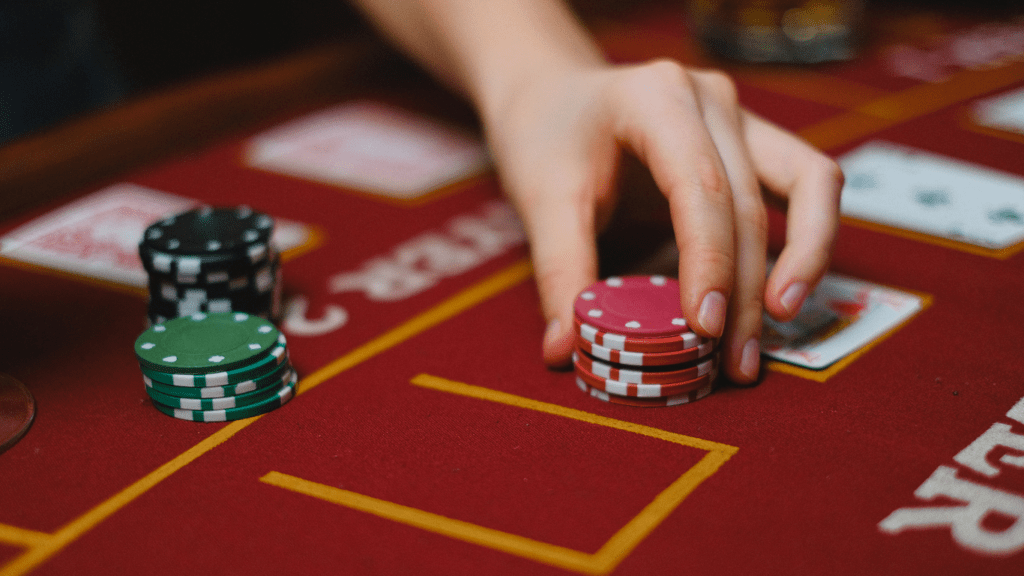Delving into the intricate realm of human behavior, the psychology of risk offers a fascinating insight into why individuals are drawn to gambling despite the inherent uncertainties. As I explore the underlying motivations and cognitive processes that drive our propensity for risk-taking, a deeper understanding emerges on the allure of chance and the thrill of uncertainty.
From the exhilarating highs to the devastating lows, the intricacies of our psychological makeup play a pivotal role in shaping our attitudes towards risk. In this article, I’ll delve into the complex interplay between psychology and risk, shedding light on the factors that influence our decision-making processes when faced with uncertain outcomes.
By unraveling the mysteries behind our gambling tendencies, we can gain valuable insights into how to exercise control and make informed choices in the face of risk. Stay tuned as we navigate the intriguing landscape of human behavior and delve into the psychology of risk.
Overview of “The Psychology of Risk: Why We Gamble and How to Control It”
Exploring the psychology of risk reveals why people are drawn to gambling despite its uncertainties. Understanding the motivations and cognitive processes behind risk-taking provides insight into the emotional highs and lows that accompany such behavior.
Recognizing the psychological drivers of gambling enables individuals to manage their impulses and make informed decisions. By fostering self-awareness and self-regulation, people can better control their risk-taking tendencies and navigate uncertain outcomes more effectively.
Understanding the Motivation Behind Gambling
- Understanding Motivations Behind Gambling: People are attracted to gambling due to the thrill of risk, emotional highs, and the excitement of potential rewards.
-
Psychological Factors in Decision-Making: Cognitive biases, emotional influences, and perceptions of risk shape the decisions individuals make while gambling.
Exploration of Risk-Taking Behavior
In analyzing risk-taking behavior, it’s evident that individuals are often captivated by the thrill and excitement that accompany uncertain outcomes. The adrenaline rush and anticipation of a favorable result can be highly rewarding, prompting individuals to engage in gambling activities.
Moreover, the desire for instant gratification and the possibility of significant financial gains play a significant role in enticing individuals to take risks through gambling.
Psychological Factors Influencing Gambling Decisions
Several psychological factors can impact an individual’s decisions when it comes to gambling. One such factor is the phenomenon of cognitive bias, where individuals may exhibit distorted thinking patterns that lead them to make irrational choices.
Additionally, the influence of emotions such as excitement, hope, and even desperation can cloud judgment and push individuals towards risky gambling behavior. Understanding these psychological elements is essential in comprehending why individuals may struggle to control their gambling impulses and how these factors can be managed to promote responsible decision-making.
Impacts of Gambling on Mental Health
Gambling can have detrimental effects on mental health, particularly concerning addiction and impulse control issues. Engaging in gambling activities can lead to addictive behaviors, where individuals find it challenging to resist the urge to gamble despite negative consequences.
These addictive tendencies can impact one’s overall mental well-being, causing stress, anxiety, and even depression. Additionally, gambling can exacerbate impulse control issues, making it difficult for individuals to make rational decisions and prioritize long-term goals over immediate gratification.
Addiction and Impulse Control Issues
Addiction to gambling can result in significant distress and dysfunction in various areas of life. It can lead to financial problems, strained relationships, and a decline in overall mental health.
Individuals struggling with gambling addiction may experience intense cravings to gamble, leading to compulsive behavior and an inability to stop despite awareness of the negative outcomes. Furthermore, impulse control issues associated with gambling can weaken one’s ability to regulate emotions and make sound judgments, increasing the likelihood of engaging in risky and irrational behaviors.
Strategies for Managing Risk in Gambling
To manage gambling risks, it’s important to set clear boundaries and stick to a predetermined budget that doesn’t impact essential expenses. This helps prevent impulsive decisions and financial strain.
Avoid chasing losses by accepting that gambling is based on chance, as trying to recoup losses can lead to more financial and emotional distress. Practicing self-control, setting time limits, and taking breaks ensures rational decision-making and avoids impulsive behaviors.
Seeking support from trusted individuals or professionals is crucial for those struggling with gambling habits. Exploring alternative hobbies and interests can also reduce the temptation to gamble and promote overall well-being.



 Josephers Franklinster
Founder & Chief Strategist
Josephers Franklinster is the founder and driving force behind Pro Gamble Genius. With over a decade of hands-on experience in the gambling world, Josephers has cultivated a unique perspective that merges industry knowledge with an intuitive understanding of gambling psychology. His expertise spans across casino operations, advanced poker strategies, and the emerging fields of cryptocurrency betting. Passionate about empowering others, Josephers established Pro Gamble Genius as a platform where gambling enthusiasts of all levels can access trustworthy insights and actionable advice. His commitment to delivering in-depth analysis and strategic foresight has helped shape the platform into a comprehensive resource for anyone looking to make informed decisions in the ever-evolving landscape of gambling. Known for his innovative thinking and strategic vision, Josephers is continually exploring new ways to enhance the platform and serve its audience.
Josephers Franklinster
Founder & Chief Strategist
Josephers Franklinster is the founder and driving force behind Pro Gamble Genius. With over a decade of hands-on experience in the gambling world, Josephers has cultivated a unique perspective that merges industry knowledge with an intuitive understanding of gambling psychology. His expertise spans across casino operations, advanced poker strategies, and the emerging fields of cryptocurrency betting. Passionate about empowering others, Josephers established Pro Gamble Genius as a platform where gambling enthusiasts of all levels can access trustworthy insights and actionable advice. His commitment to delivering in-depth analysis and strategic foresight has helped shape the platform into a comprehensive resource for anyone looking to make informed decisions in the ever-evolving landscape of gambling. Known for his innovative thinking and strategic vision, Josephers is continually exploring new ways to enhance the platform and serve its audience.
